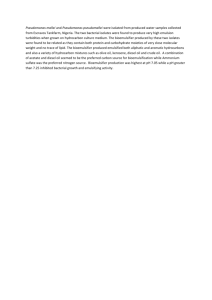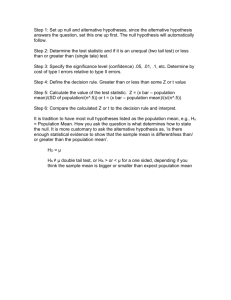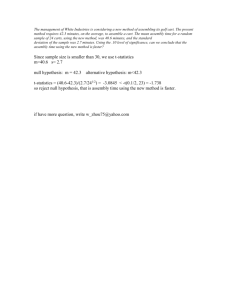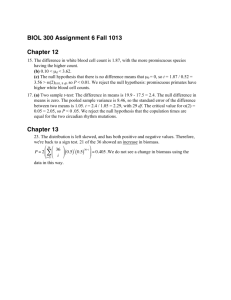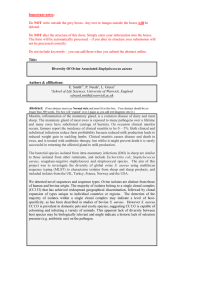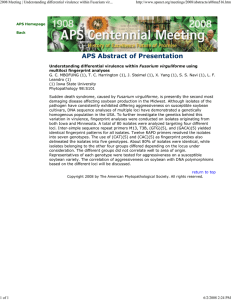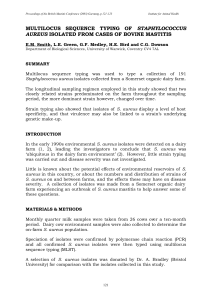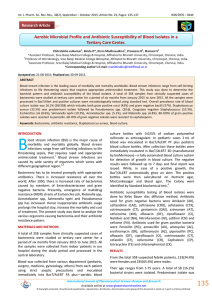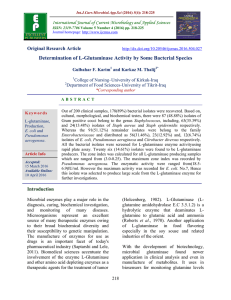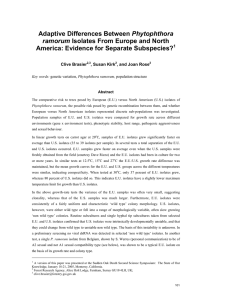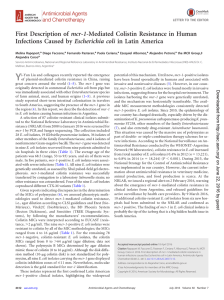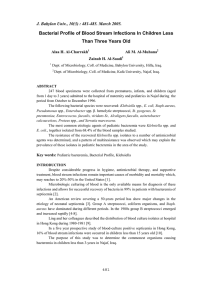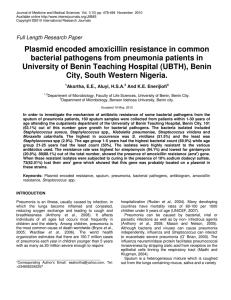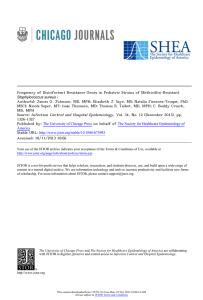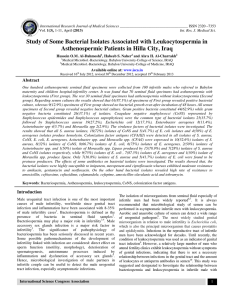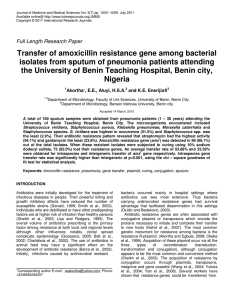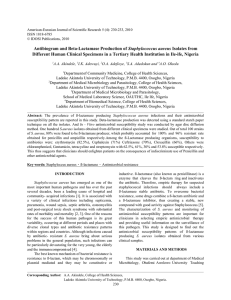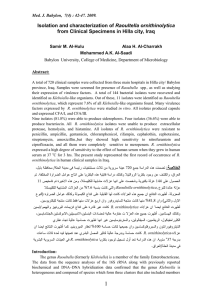Scientific Report and Publication Writing
advertisement
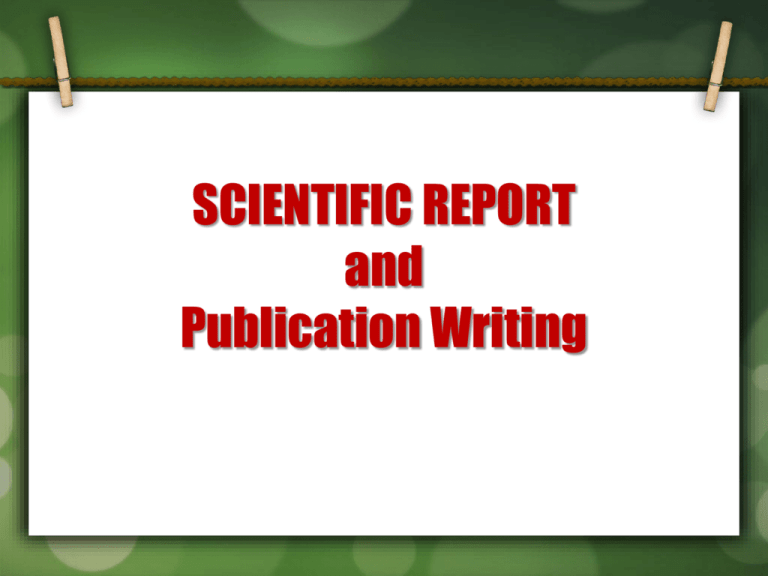
SCIENTIFIC REPORT and Publication Writing FORMAT OF SIP A good SIP /research paper includes the following sections: Title Page • title of the project must be brief, simple and catchy (max 15 words) • it must reflect the subject of your research • You may use subtitles Ex: From trash to cash: Utilization of Water Hyacinth for… Abstract • should consist of short, concise descriptions of the problem and its solution. It must be one page only, single-spaced with a maximum of 250 words, typewritten in Times New Roman style, font 11. It must also state the following: • • • • Purpose or Objective Procedure/s used Results Conclusion Acknowledgement – contains the names of people and agencies that helped in the conduct of the work described. Table of Contents – lists the different parts of the whole report with the corresponding page number of each part. The wording and grammar of the chapter titles, heading and title tables and figures should be consistent. Chapter I – Introduction informs the reader of the problem under study. It shows the nature of scope and the problem, its historical and theoretical background and a review of literature relevant to the problem. The Introduction is about one -two pages It usually leads into the research problem. (The best way to present it is from global-regional-national-local). In a journal presentation, references are already included. a) Background of the Study – states the rationale of the study. It explains briefly why the investigator chose this study to work on. b). Statement of Problems/Objectives – the nature and scope of the problem should be presented with clarity. Two types of objectives or problems maybe stated: 1) General Objective – this is related to the problem as given in the early part of the section. 2) Specific Objectives – this states the purpose of each experiment conducted. Usually, one general problem and three specific problems which derived from the general problem will be stated. The research problems should be specific, reliable, valid, measurable, objectively stated. It can be a question form or in a declarative statement. Example General Objective: This study aims to isolate bacteria which are potential against E. coli and S. aureus that could be used in the absorption of Lead (Pb) in order to treat Pb-contaminated water and soil and other contaminants. Specific Objectives: Specifically, it aims to: 1. Isolate bacteria from Mt. Magdiwata, mangrove areas and mining sites; 2. Test the bacterial isolates against E. coli and S. aureus; 3. Determine if there is a significant difference on absorption of lead by the bacterial isolates. 3. Formulation of the Hypothesis The Formulation of the Hypothesis has two types namely: the null hypothesis (Ho) and affirmative hypothesis (Ha). Hypotheses is a scientific guess which intends subject for thorough investigation. It is recommended to use null hypothesis in your research project. Example of Null Hypothesis: Based from the problems, the following null hypotheses were formulated: 1. The bacterial isolates cannot inhibit the growth of E. coli and S. aureus; 2. The bacterial isolates are not potential for lead absorption. 3. There is no significant difference on the amount of lead absorbed by each isolates. c) Theoritical and Conceptual Framework – forms the basis that will support the concept and theories of the study. States the variables involved and defines the applicable scientific concept. (optional) d) Significance of the Study indicates how important is your investigatory project for the people, environment and community as a whole. Is it really relevant in the changing world or global impact into the field of technology? e) Scope and Limitations – states the coverage and extent of the study Chapter II Review of Related Literature - sufficient background information should be presented for readers to understand and evaluate results of the present study. Only the important studies and theories written on the topic should be included. • Note: Do not copy/paste downloaded materials Chapter III - Methodology - provides enough details so that a competent worker can repeat the experiments. a) Materials/Equipment - the exact technical specifications, quantities and source of method of preparation for all materials used should be given. Specifically-built equipment used in the study must be described and the description accompanied by a picture. b) Sampling Procedure - the method used in gathering data. Ex. Through questionnaires, interviews, or for experimental methods, the sampling procedure used in gathering specimens and materials. Example of Sampling Procedures: a) For water sample: Is it grab sampling or composite sampling? How deep? Method of collection? How the sample is preserved? Time of the day? How much? etc… b) For soil sample: Is the area plotted? How the sample is preserved? How deep? How much? etc... c) For fish sample: is it scales? Or flesh? How much? etc … c) Research Design The Research Design discusses the method on how you will present your result, and will be the basis of your experiments. Cup Cylinder Assay Experimental Set-up (Bacillus Isolates) Fusarium oxysporum f. sp. Cubense as test organism Zone of Inhibition R1 1 2 3 4 5 Positive Control Negative Control R2 R3 Average Note: There should at least be 3 replicates to be statistically feasible. d) Treatment/General Procedure – the manner and sequence by which each experiment or sets of observation were done and how measurements were obtained should be described in detail. Avoid using the “recipe style” when stating the step-by-step procedure. Use the narrative form in the past tense. Chapter IV. Results and Discussions - this may be divided into sub-sections describing each set of experiments or observations - The order of presentation must follow the objectives of the study. a) Findings – the data may be presented in full and described descriptively in the text or these may be summarized in tables, pictures and graphs. The statistical test used to determine the possible significance of the finding should be described. Tables, pictures and graphs should make the presentation of the data more meaningful. b) Analysis of Data – the interpretation of the findings is discussed and the significant features shown in the table, figures or graphs are pointed out. - It will be better to support discussions with readings on related literature. In such case, family name of author and year of publication must follow the citation. Chapter V Conclusions and Recommendations • Conclusions – the general truth implied or illustrated by the results should be clearly stated. The evidence based on the results should be summarized for each statement. Conclusion must answer your objectives, and must be presented just as you present your objectives. Recommendations Recommendations – consists of suggestions on future actions such as a new direction of research or further experiments to be performed, practices that might be adapted or discarded in order to attain certain goals or objectives. Bibiliography - an alphabetical list of all materials consulted in the preparation of the study/research paper. - Downloaded materials should present author, title of article, URL, and date downloaded. Note: www.google.com is not a bibliography. Appendices - Figures, Definition of Key Terms, Pictorials, Statistical Analysis and other supporting documents. Standard testing procedures could be included here. Should be labeled from A to Z. Ex. Appendix D A Good write-up 1.Conform with Guidelines. 2.Grammatical correct. 3.Well presented Research Design. 4.Properly presented procedure, simple but complete. 5.Data well presented and well analyzed data. 6.Good ABSTRACT. 7.Proper citation. 8.Stand alone Preparation for Congress: 1 • Explore all possible questions. Write the questions 2 • Answer your questions. 3 • Try to memorize what you will say during congress. Poster Presentation Should follow a proper format. Poster Presentation Remember : “A winning contestant is somebody who knows his work, and highly confident that he knows his work better than anyone”. "A winning piece is something of which the Panelist has nothing more to ask." THANK YOU !!! WORKSHOP • Group into 4 – – – – Group 1Group 2Group 3Group 4- Introduction Review of Related Literature Methodology Bibliography

